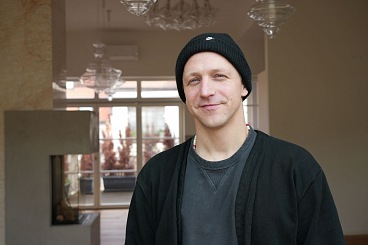Czech female politicians are often exposed to not only sexualized violence. It was really unpleasant, says one of them
Czech MPs are the target of a number of attacks. A recent study confirmed this, showing that psychological violence is among the most common forms. More than 40 percent of them have experienced sexualized violence. Whether it's unwanted touches, or sexual suggestions. One politician reportedly even experienced a sexualized assault.
According to the research results of the non-governmental organization Fórum 50 % in cooperation with the Friedrich-Ebert-Stiftung Office, domestic female MPs encounter threats of violence in almost two-thirds of cases. In more than half of the cases, they are verbally assaulted and intimidated. Compared to their male colleagues, the attacks on them are reportedly much more personal. The better known the female MP is, thanks to public appearances and the media, the greater her criticism tends to be.
Also relatively common are unsolicited touches and sexual advances, as confirmed by almost 42 percent of the women surveyed. The aforementioned attacks affect younger female MPs the most. By the age of 40, more than 57 percent of them had experienced the public publication of derogatory or sexualized photographs. In addition to them, their assistants are also affected, as the study reports. For them, however, it is much more difficult to define their positions against the attackers, given that they are not on an equal footing with the MPs.
"It was really unpleasant ..."
One of the deputies was even sexually assaulted. Due to the sensitivity of the topic, however, she did not want to reveal her name and any details publicly.
"I can only say that it was hinted to me, either yes, you'll go on, or no, and there will be nothing. It happened within a political party, it was also dealt with by the regional and district organization and the person in question has already ended in politics. This incident I did not report to the police, it was resolved by my husband with that man. It was really unpleasant. I had a narrow circle of people who knew about it,"
revealed the politician.
The attacks are also aimed at those dealing with a human rights agenda. Such as for instance migration, the Istanbul convention, marriage for all, or questions around climate change.
"Research results show an alarming rate of psychological and sexualized violence faced by Czech representatives across the political spectrum. Gender-based violence against female politicians not only has a negative impact on the performance of parliamentary mandates, but it can also deter many women from entering political life,"
The director of Forum 50% Markéta Kos Mottlová wrote about it in a press release.
Anonymity is harmful
Nearly two-thirds of them do not even report it to the police. The reason they cite is that it was a one-time occurrence that did not escalate further. At the same time, they are reportedly unsure whether reporting would make any sense in the end.
The surveyed female deputies agree that hate comments and threats clearly prevail in the online environment. According to them, attacks mostly occur in waves, and are more intense in direct proportion to the spread of chain emails and sharing of hateful content and disinformation in various groups on networks.
What we as the public see in the comments on the social networks of female politicians is just the tip of the iceberg. Some deputies and their assistants go through the comments, and hide or delete the objectionable and threatening ones. At the same time, they block or report profiles that repeatedly stand against them and spread false information. Some of them, as the study shows, have themselves curtailed their own activities on social networks in response to these hate comments affecting their children.
In addition to this, they receive offensive content through private messages: via social networks, email, SMS or WhatsApp. The problem remains that hateful expressions are not anchored in our criminal law.
A woman in politics is still like a unicorn with pink hooves
According to the Forum 50%, a mechanism for reporting and sanctioning inappropriate and harassing behavior could be a solution.
"We went in this direction in STAN. We have an approved directive that regulates how to report such behavior and how to behave in such a case. With this directive, we do not only address this topic, but also any suspicion of corruption by anyone. I think it contributes somewhat to a healthier environment. As for publicly active women, we already have the possibility of how to protect ourselves, although it is very difficult to enforce. It's about the whole setup of society. A woman in politics is still like a unicorn with pink hooves. The steps and measures that need to be taken are more, everything goes hand in hand,"
MP Barbora Urbanová stated for LP-Life.
The politicians believe that the situation would be improved by ongoing training of police officers, judges, and prosecutors. They see the greatest potential in raising awareness and education in the area of perceiving gender-based violence against publicly active women.
About 53 percent of female deputies, according to the survey, believe that the tools to combat violence are sufficient. 27 percent of them hold the opposite view. Just under a fifth are then unable to judge. Politicians from all parliamentary clubs participated in the survey.
Sources: author's text, own questioning, Forum 50%, PSP ČR













